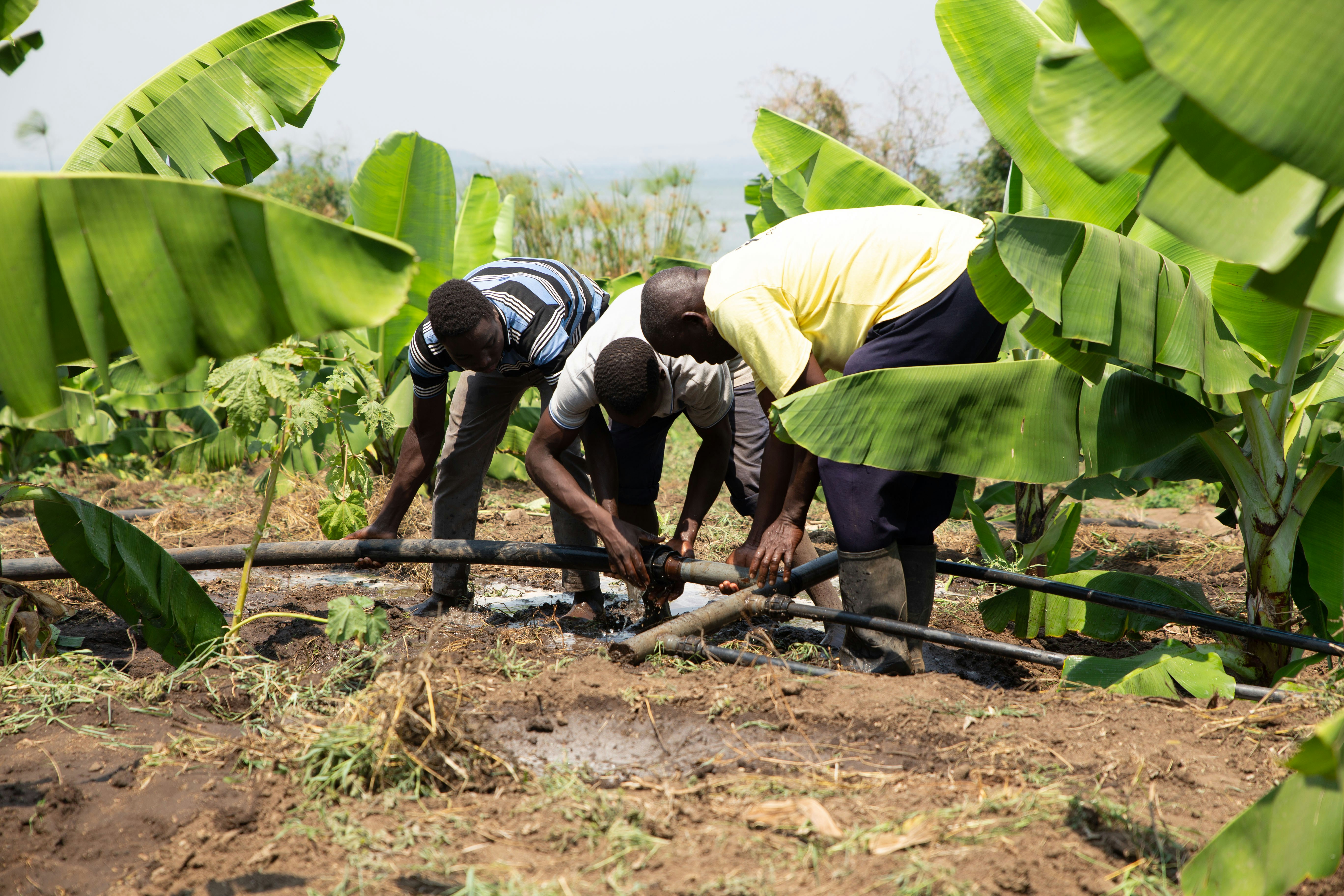
Invisible Labour, Visible Impact: Rethinking Migration Policy and Precarity in South Africa
Migrant workers in South Africa’s domestic service, agriculture, and construction sectors form the unacknowledged backbone of the economy. They build homes, harvest food, and sustain households, yet their contributions remain largely invisible in national discourse. Despite recent policy reforms and research initiatives, systemic exploitation, insecure legal status, and limited access to social protection continue to define their daily realities.
Promise and Pitfalls of Policy Reform
The newly approved White Paper on National Labour Migration Policy signals a shift toward modernizing South Africa’s migration framework. It introduces a Points-Based System to attract skilled workers, simplifies visa processing, and proposes automatic work rights for spouses a long-overdue alignment with global best practices. These reforms promise to make South Africa more competitive in the global talent market (Labour, 2025).
However, the White Paper also embeds tension between national protectionism and regional economic interdependence. Critics question whether sector-specific quotas and labour market testing will genuinely balance local employment priorities with the country’s need for skilled labour. Legal experts warn of possible constitutional challenges, while migration researchers caution that the policy overlooks the informal and undocumented labour force, leaving millions of workers outside formal protection. Without robust data systems and sustained collaboration between government and industry, these reforms risk reinforcing the very inequities they aim to resolve.
Labour in Transition: Construction and the Informal Economy
Research by Professor Rogerson on cross-border migrants in the construction sector reveals a deep structural shift. As formal employment contracts give way to flexible subcontracting and the rise of labour-only subcontracting (LOSC) firms, migrant workers have become central to sustaining low-cost, high-demand labour markets. This informalization of work reflects a broader trend in South Africa’s economy one where precarious employment is normalized, and accountability is diffused through fragmented chains of subcontractors (Rogerson, n.d.).
Within this structure, migrant workers often navigate an impossible choice: accept exploitative conditions or lose access to livelihoods altogether. Their invisibility is not accidental but structurally produced a byproduct of cost-saving strategies and weak labour oversight.
Agriculture and the Unequal Harvest
The agricultural sector presents another stark example of institutionalized precarity. As highlighted by Janet Munakamwe and Zaheera Jinnah in “A Bitter Harvest,” migrant farmworkers remain trapped in exploitative labour systems shaped by historical and contemporary forces. Two parallel systems dominate: one rooted in long-standing cross-border labour traditions in provinces like Limpopo and Mpumalanga, and another emerging from modern economic pressures and casualization (Jinnah J. M., 2014).
Despite formal legislation meant to protect all workers, enforcement remains weak. Employers wield immense power over isolated and often undocumented workers, who face wage theft, lack of contracts, and physical insecurity. Unionization efforts are minimal, constrained by fear of retaliation and limited institutional support. As one worker from the study put it, “We share the same struggle, but we cannot raise our voices.”
Domestic Work and Negotiated Precarity
In the domestic work sector, Zaheera Jinnah’s concept of “negotiated precarity” captures the paradox of survival within constraint. Migrant domestic workers, often women, navigate restrictive immigration regimes that deny them work permits, forcing many into irregular status. Yet they exercise agency within this vulnerability using temporary asylum permits, informal networks, or cross-border mobility to sustain their families (Jinnah Z. , 2020).
Even in a legally regulated sector, informality thrives. Employers routinely evade compliance, rationalizing long hours, underpayment, and lack of contracts as “flexibility.” Workers tolerate these conditions not out of passivity but as a strategic calculation: a way to survive and support dependents across borders. Their resilience reveals both the depth of structural exclusion and the capacity for endurance and adaptation.
Centering Migrant Voices in Policy Reform
To move beyond policy abstraction and statistics, it is essential to amplify firsthand migrant perspectives through interviews, testimonies, and participatory research. These narratives humanize data, illuminate survival strategies, and expose the lived consequences of systemic precarity. They also challenge policymakers to ground reforms in the realities of those most affected.
A rights-based, inclusive approach must therefore prioritize:
- Regularization pathways for undocumented workers,
- Stronger labour inspection and enforcement,
- Decent work guarantees across sectors, and
- Platforms for migrant representation and dialogue.
The current policy moment offers an opportunity to reimagine South Africa’s approach to migration not as a threat to local employment, but as an integral part of national development. Recognizing migrants not as temporary labour but as members of communities, families, and economies is the first step toward justice. By centering their voices, we see not only exploitation, but resilience and the possibility of a more equitable and humane future of work.
Photo by daniel kawed on Unsplash
References
Jinnah, J. M. (2014, October). A bitter harvest: migrant workers in the commercial agricultural sector in South Africa. Retrieved from MiWORC: https://www.agbiz.co.za/uploads/documents/news/Newsletter/2014/November/14_11_06%20report%20-%20foreign%20labour%20in%20the%20agriculture%20sector.pdf
Jinnah, Z. (2020). Negotiated Precarity in the Global South: A Case Study of Migration and Domestic Work in South Africa. Retrieved from Studies in social justice: https://journals.library.brocku.ca/index.php/SSJ/article/view/1971
Labour, D. o. (2025, May). White Paper on National Labour Migration Policy. Retrieved from Department of Employment and Labour: https://www.gov.za/sites/default/files/gcis_document/202505/52747gen3234.pdf
Rogerson, P. C. (n.d.). Building Skills: Cross-border migrants and the South African construction Industry. Retrieved from The Southern Migration Project: https://samponline.org/wp-content/uploads/2016/10/Acrobat11.pdf
Categories:
- Immigration
- Immigration Advisory Board
- Informal Sector
- Migration And Global Issues
- Urban Development
Tags:
- #MigrantEmpowerment
- #justiceforall
- #ReimagineWork
- #EmpowerWorkers
- #SouthAfricanEconomy
- #HumanDignity
- #WorkplaceEquity
- #MigrantStories
- #DecolonizingWork
- Solidarity
- #MigrantJustice
- #PolicyChange
- #EconomicReform
- #SocialProtection
- #InvisibleWorkers
- #CrossBorderLabour
- #FairWork
- #LabourLaw
- #WorkplaceJustice
- #GlobalSouth
- #WhitePaper2025
- #MigrationPolicy
- #GenderJustice
- #equity
- Inclusion
- #MigrantVoices
- #WorkersRights
- #DecentWork
- #InformalEconomy
- #ConstructionIndustry
- #AgriculturalWorkers
- #DomesticWorkers
- #LabourMigration
- #EconomicJustice
- #PolicyReform
- #HumanRights
- SocialJustice
- #LabourRights
- Southafrica
- #MigrantWorkers

